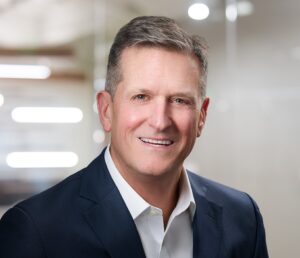It’s no secret we live in a society of people who are isolated, disconnected, and, sadly, politically polarized. We’re prisoners in our personal silos, tethered to our devices, brainwashed by the messages of our echo chambers. And we’re starved for real social interaction—especially with those different from us—and the meaningful discourse and cross-pollination of ideas that come from that. No wonder anxiety and depression are rampant!
With the technology and mental health components, it’s tempting to think this is a “young person problem,” and it is in part…but it’s also an everyone problem. People of all generations play a role in the dysfunction.
As I listened to Michael Smerconish talk about his Mingle Project, it got me thinking about how his ideas could translate to the workplace. Michael believes that by gathering with others who don’t look and think like us, we can start to heal our world. While his project is more focused on a great “coming together” in the cultural/community arena, why can’t the same hold true at work?
I’m a labor lawyer and a workplace trends expert. I wrote about the rapidly changing workplace in Flex: A Leader’s Guide to Staying Nimble and Mastering Transformative Change in the American Workplace and am now writing a follow-up titled Age Appropriate: How to Leverage a Multigenerational Workforce and Win the Market. In it, I tackle the real “generation gap” that keeps companies from thriving. There’s a chasm between a Silent Generation employee (they’re not all retired!) and a Gen Z employee—and the generations in between have their differences, too. All these employees work in “silos,” talking at or over one another and certainly not learning from each other.
The lack of communication between coworkers has become more acute since the COVID-19 pandemic. More people work remotely and meet electronically. This creates a natural distance, a greater risk of misinterpretation between supervisors and subordinates, and less collaboration among peers. Businesses ultimately suffer from a more distanced workplace. Innovation is stifled. Knowledge is hoarded. Training and development are tougher.
It might be oversimplifying to say that such issues are the primary cause of the staff shortage and turnover issues so prevalent today. Yet they surely contribute. Good people want to work for cohesive, collegial organizations where they can be successful and feel a sense of belonging. Coworker relationships really do matter: According to a SHRM study, workers who have close friends at work are more likely to stay with their employer. Why can’t those close friendships be multigenerational?
I recently attended my law firm’s annual retreat. It was, of course, chock-full of business sessions, but it was the social events that provided the most benefit. To be able to catch up with colleagues and friends, many of whom had previously been only faces on a screen, was invaluable. We are a large international organization that is very diverse, with attorneys and staff of all races, ethnicities, ages, and geographical differences. The opportunity to get together with those from other offices and countries reinforced collegiality, which is critical to the success of our business.
In a word, we mingled! It was fun, and it was obvious that those in attendance enjoyed the camaraderie. The word used most frequently through the long weekend was “family.” This opportunity was priceless. We left with a renewed energy and motivation and, in many instances, new projects and ideas.
This was a great reminder to me of the power of mingling. In-person gatherings are only one example of what companies can do to close the gaps between employees. If we can find ways to get people from all ages, races, and backgrounds to connect with each other—to share their respective strengths, skills, and wisdom—all kinds of wonderful things can happen.
Perhaps most importantly, when we spend time together with people who seem “different” from us and learn what makes them tick, we come to see that we are more alike than we knew. Not only does discovering our commonalities help us bond, it goes a long way toward defusing tensions, boosting collaboration and innovation, and encouraging understanding and empathy to flourish.
This will take focused intention and effort on the part of leaders. We will have to create workplace conditions and situations that compel employees to gather and connect in deeper ways. This may involve significant changes to everything from the benefits we offer to our remote work and flexibility policies to how we develop leaders and how we approach hot-button issues like DEI and organized labor.
If I’m being honest, I have hopes that go beyond business goals. We spend one-third of our lives working. It’s great that we’re earning a living, but we need to expect more from that time. The workplace is a microcosm of the larger world (especially right now with so many age groups represented). Why can’t it, too, be a crucible for human connection, understanding, personal growth, and perhaps even healing?

Rick Grimaldi is the author of the upcoming book Age Appropriate: How to Leverage a Multigenerational Workforce and Win the Market, as well as his earlier title, Flex: A Leader’s Guide to Staying Nimble and Mastering Transformative Change in the American Workplace. A labor relations lawyer and partner with the national labor and employment law firm Fisher Phillips, Rick has decades of experience working in and with companies both large and small. He has served employers and employees in Pennsylvania as deputy general counsel to Governor Tom Ridge and chief counsel of the Pennsylvania Department of Labor and Industry, worked as a human resources professional, and has spent years in private practice partnering with companies to help them adapt to the ever-changing business environment, achieve their workplace goals, and become better employers that are ultimately rewarded by the market. Rick is an internationally recognized writer and speaker.






